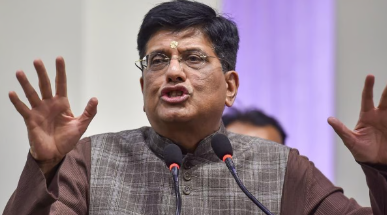Ishika Kumar, Pune
Discussions at the World Trade Organization’s (WTO) ministerial meeting in Abu Dhabi aimed to resolve issues and impasses that were generated. The fifth day of the meeting, which was chaired by key members including India, the US, and the EU, saw talks seeking to reconcile disparities on matters such as agriculture, fisheries subsidies, and duty standstills concerning e-commerce trade.
The 13th Ministerial Conference (MC13) was originally scheduled to conclude on 29th February 2024 but was extended by a day due to the inability of nations to reach a consensus on these pivotal matters and, with no immediate signs of breakthroughs in talks to establish new global commerce rules. Ismaila Dieng, the WTO spokesman, stated that ministers remained actively involved in intensive deliberations regarding a set of agreements proposed for adoption at MC13. Consequently, to allow further time for negotiations, the Formal Closing Session of MC13 was deferred to 5 pm UAE time on Friday 1st of March 2024.
A total of nine countries, including Brazil and China, were engaged in discussions within the green room. Negotiations were prolonged as the WTO chief Ngozi Okonjo-Iweala strongly advocated for conclusive outcomes to the issues raised, as mentioned by an official. The conference sought agreements on terminating fishing subsidies and prolonging deadlocks on digital trade tariffs, a proposition opposed by India and South Africa. Discussions persisted past midnight as officials endeavored to finalize agreements. Though challenges due to interlinkages between the areas under negotiation arose, ministers persevered.
India emphasized the necessity of prioritizing a permanent solution to public stockholding of grains for food security purposes before addressing new issues in the agriculture sector. Significant discrepancies among all affluent nations kept persisting, concerning the topic of market access for agricultural commodities and export restrictions on seven agricultural matters. India affirming its refusal to compromise the interests of farmers and fishermen, was a stance taken.
U.S. Trade Representative Katherine Tai acknowledged the possibility of breakthroughs but highlighted the necessity for intricate trade-offs, particularly concerning fishing subsidies. India’s Union Commerce and Industry Minister, Piyush Goyal, expressed regret over certain nations obstructing agreements yet showed no sign of relenting on New Delhi’s opposition to extending a waiver on digital tariffs. He noted that some countries are hindering significant outcomes that could boost the confidence in WTO amongst the less developed and developing nations. Despite this, he remained optimistic about achieving such outcomes in the ongoing talks.
